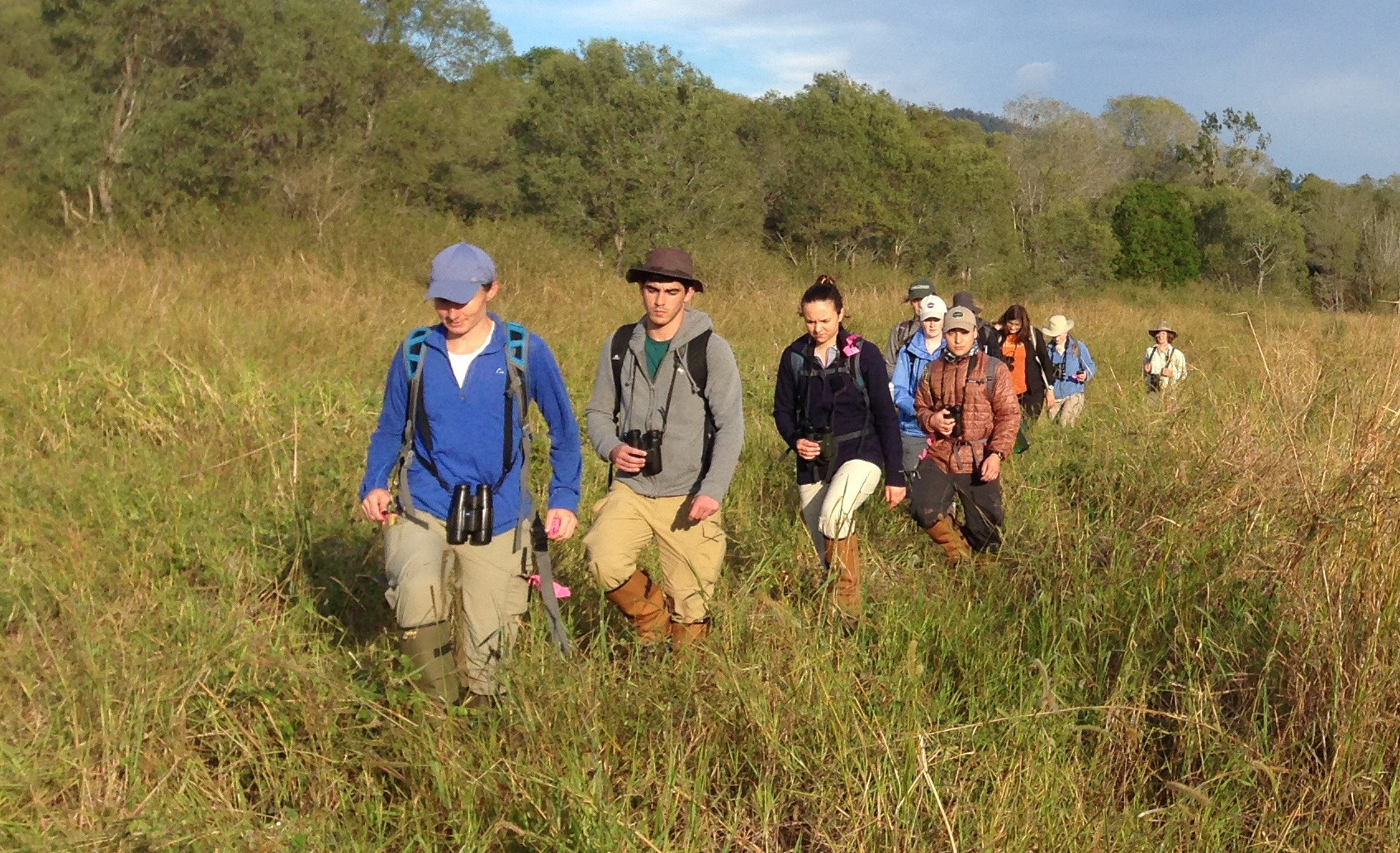Student opportunities

Opportunities for Cornell Undergraduates
The Macaulay Library is an expansive archive of millions of pieces of media submitted by eBirders from around the world. These media are used to build tools like Merlin; used in scientific research; as inspiration for art; and as a learning resource for anyone in the world. To support the work of the Macaulay Library, we are seeking student assistants to help with the following projects listed below.
For all projects, students are expected to have the following skills:
- Strong communication and organizational skills.
- Enthusiasm for birds, birding, and participatory science data collection.
- Knowledge of eBird and Merlin.
- Ability to work independently.
- Prior experience with Slack, spreadsheets, word processing software, and data management tools.
Merlin Bird ID
The Machine Learning in Macaulay Library (ML^2) Team is seeking student assistants to help build the annotated training datasets that power the machine learning classification systems of Merlin Sound ID and Photo ID. Students can work on either or both of the following projects:
- Photo Annotation—Identify birds in photographs and annotate based on a strict protocol, using an online tool. Demonstrated expertise in identification of birds by sight is required to work on this.
- Sound Annotation—Identify birds in audio recordings and annotate based on a strict protocol, using an online tool. Demonstrated expertise in identification of birds by sound is required to work on this.
Depending on the student worker’s interests and availability, additional opportunities related to Merlin may include:
- Species account review—Select photos and audio from the Macaulay Library to be included in bird species accounts
- Content translation—If proficient in another language(s), translate species account information into different languages to be included in future updates
Students are expected to work 5–10 hours per week, including one weekly meeting with their supervisor over Zoom. Hours may be worked remotely or in person, depending on the agreed upon responsibilities.
Community support and outreach
The eBird and Merlin Engagement Team is seeking a student assistant to create content for eBird and Merlin’s web and social media platforms. Essential job duties include working on:
- eBird Reviewer Spotlights—Interview selected eBird Reviewers via email and format their responses into an article to be posted on eBird.org (example here), with the goal of posting one spotlight per month.
- Macaulay Library Contributor Spotlights—Interview selected sound recordists via email and format their responses into an article to be posted on eBird.org, with the goal of posting one spotlight per month. Interview selected photographers via email and format their responses into a brief social media post with the theme of “the story behind the photograph”, with the goal of one post per week.
- Posts for eBird and Merlin’s social media accounts—Using images from the Macaulay Library, create birding-themed posts to be shared on Merlin and eBird’s social media accounts, with the goal of one post per week.
Depending on the student worker’s interests and availability, additional opportunities may include:
- Video content creation—Film and edit videos related to birding, eBird best practices, and major events and updates to be shared on Merlin and eBird’s social media accounts. Film and edit “How to Use Merlin” themed videos to be shared in the help center and on YouTube.
This position will be supervised by Alli Smith and Emily Engle. Students are expected to work 5–10 hours per week, including one weekly in-person meeting with their supervisor(s) at the Cornell Lab of Ornithology. Other hours may be worked remotely or in person.
Macaulay Library archive growth
- Archive management—Organize and prioritize analog audio and video, and associated data, for digitization to fill in taxonomic, spatial, behavioral, and temporal gaps in ML archive.
- Archival assistant—Digitize analog audio (magnetic reels, cassettes, etc.) and video, review, edit, and upload raw digitized audio/video for archival as ML assets using Adobe Audition/Premiere, and connect the associated data to the newly edited audio/video. Demonstrated experience in identification of birds by sound and/or audio editing is required to work on this.
Collections-based research
We are seeking undergraduate students who have an interest in animal behavior. Students will have the opportunity to gain skills in data collection and data analysis techniques using the Macaulay Library collection of sound and video recordings of animal behavior. Students will learn how to collect and utilize media in their research, integrate field and lab methods, and develop computational skills for modern, integrative biology research. Research questions could include, but are not limited to, what is the variation in song in house wrens, do ovenbirds incorporate mimicry in their flight calls, does the song of American Robins vary in an individual over its lifetime? Do you desire another topic? With a mentor, you can develop your own research question. If interested, contact Glenn Seeholzer (gfs23@cornell.edu) explaining your research interests.
Interested?
Email David Weber (djw322@cornell.edu) with any questions, or to express your interest in one of these projects. Be sure to include information about your experience. A cover letter and resume is recommended.

